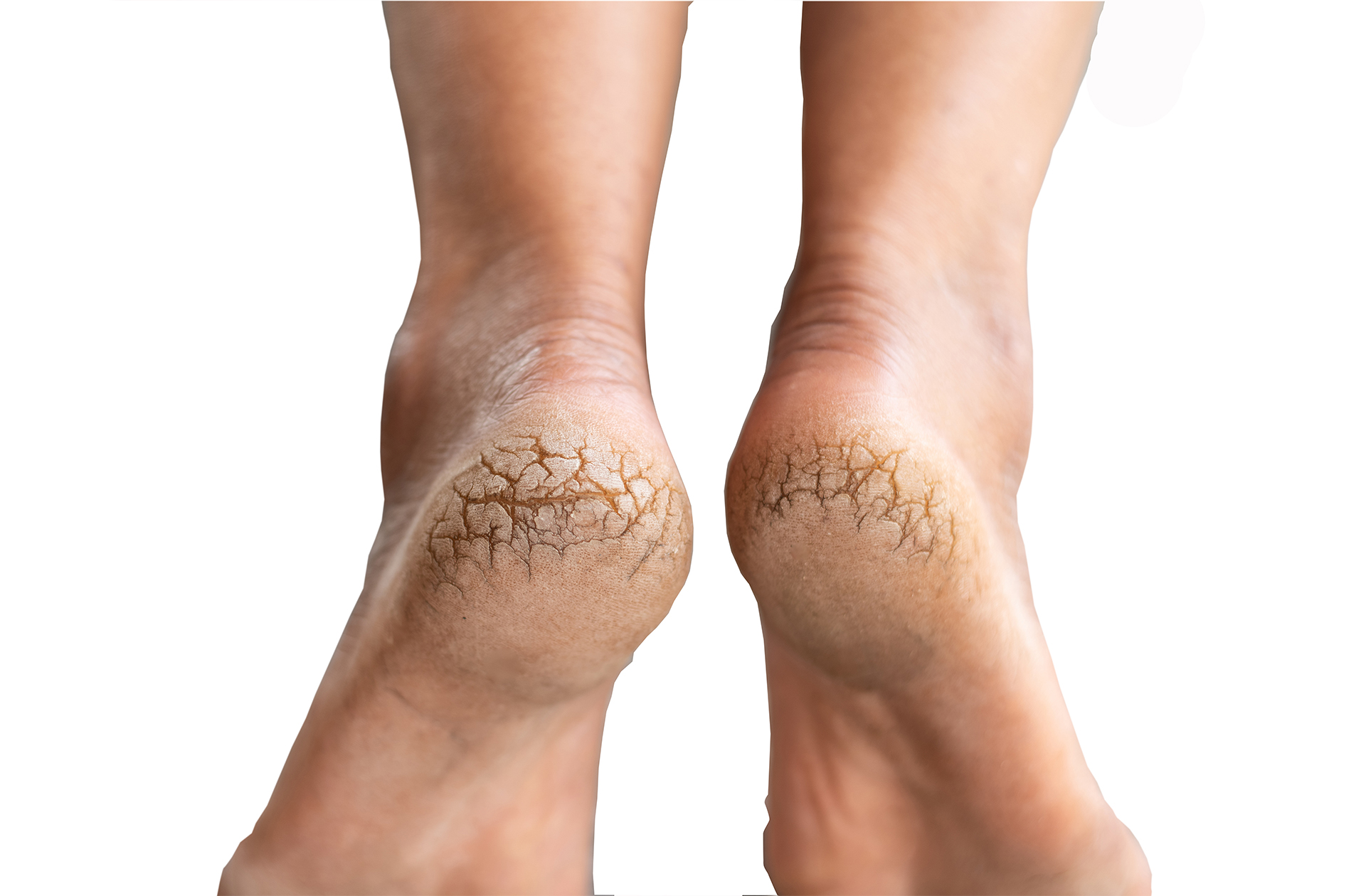
Overview
As hard skin starts to build up around the heel area, as it gets thicker there is an increased chance that the hard skin can crack. Our HCPC registered chiropodists are trained to remove the hard skin and advise on topical treatments that will reduce the likelihood of the cracked heels reforming.
Symptoms of cracked heels
The combination of thick hard skin (callus) around the heel and the soft fatty padding that sits directly below it can lead to cracking. Cracks can be unsightly, rough and damaging to socks. Deeper cracks can lead to irritation of the healthy skin that sits below. This can lead to splitting of the skin, bleeding and pain. A combination of treatments are often needed to manage the cracks and prevent them from returning in the future. Our HCPC registered Podiatrists are exerts in the treatment on this condition.
Causes of cracked heels
Prolonged standing – standing for longer periods will lead to an increase in pressure around the heel area. This can increase the chance of getting callus. Thick callus on the heel can lead to cracking.
Climate – changes in climate can lead to an increased chance of the skin drying out leading to an increased risk of cracking
Footwear – Open backed and poorly fitting footwear will increase the chances of a callus build up in the heel
Treatment for cracked heels
Products
Creams – cracked heel creams

